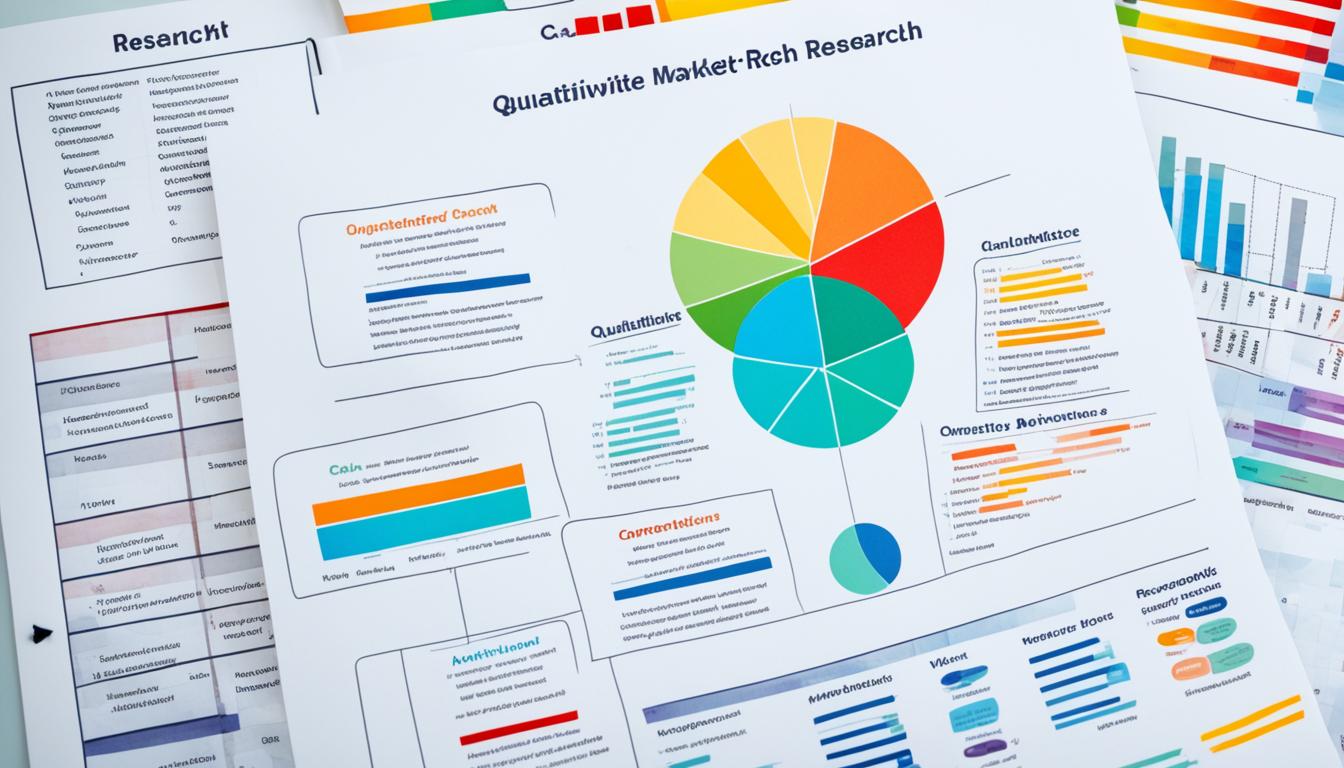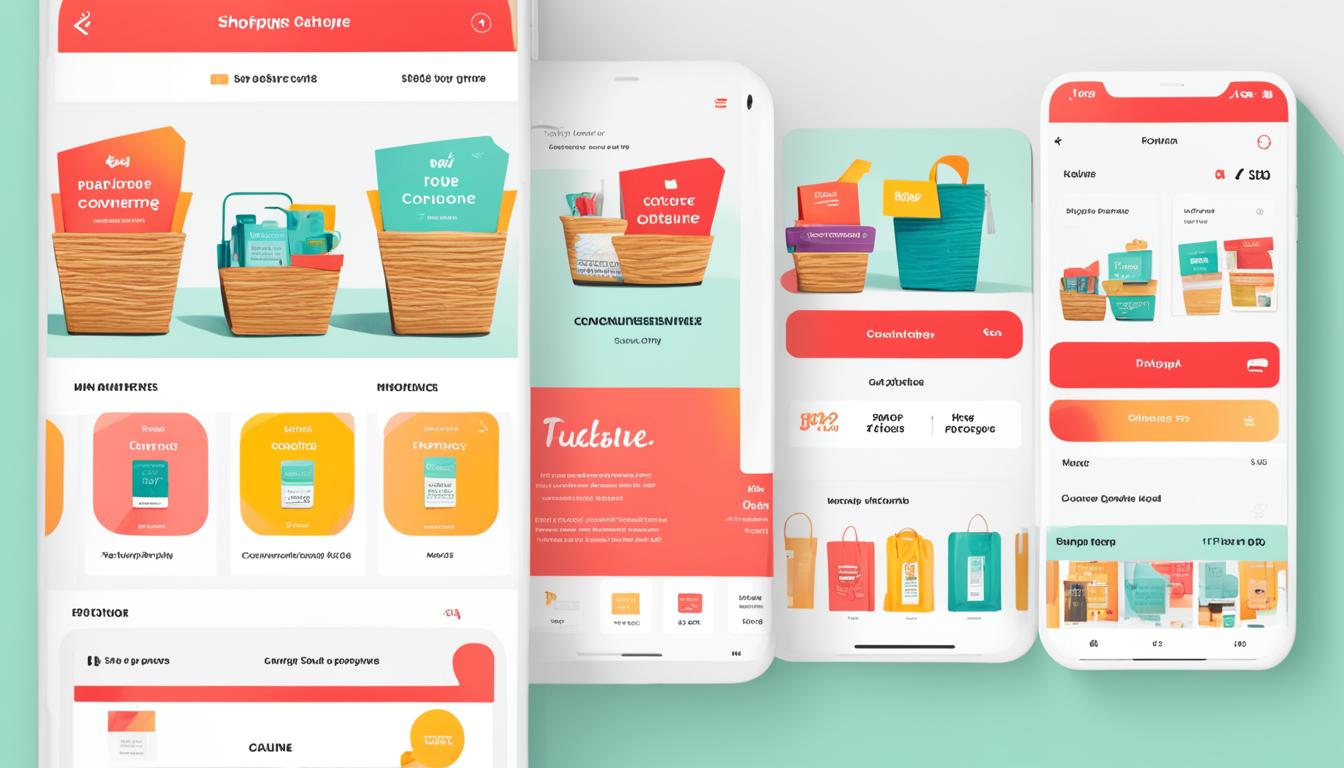A marketing strategy is essential for businesses to effectively nurture customers, improve their bottom line, and increase ROI. In 2024, one-to-one marketing strategies that focus on personalization, customer segmentation, and data-driven insights will be crucial. This guide will explore the components and importance of a one-to-one marketing strategy and provide examples and tips for implementation.
In today’s hyper-connected world, generic marketing messages are no longer sufficient to engage and convert customers. Personalized marketing is becoming the norm, and businesses that embrace one-to-one marketing strategies gain a competitive edge.
One-to-one marketing is about delivering bespoke experiences and tailored content to individual customers. It involves understanding customer preferences, behaviors, and needs through customer segmentation and data analysis. By leveraging customer relationship management (CRM) systems and utilizing data-driven insights, businesses can create targeted messaging and campaigns that resonate with each customer.
One-to-one marketing also enables businesses to effectively manage the customer lifecycle. Whether it’s acquiring new customers, nurturing relationships, or retaining existing ones, personalized marketing allows for relevant and timely communication with customers at every stage of their journey.
Real-time marketing and predictive analytics are integral parts of a one-to-one marketing strategy. By leveraging real-time data and predictive analytics, businesses can deliver highly personalized offers and recommendations, providing customers with a seamless and individualized experience.
Implementing a successful one-to-one marketing strategy requires a comprehensive understanding of customer data, effective behavioral targeting, and individualized messaging. It also involves investing in the right tools and technologies, such as marketing automation, to streamline the process and optimize marketing efforts.
Throughout this guide, we will delve into the key components of a one-to-one marketing strategy and provide examples of successful implementations. Additionally, we will explore the future of one-to-one marketing, including emerging technologies and trends.
Key Takeaways:
- Personalized marketing is crucial in 2024 for businesses to effectively engage and convert customers.
- One-to-one marketing focuses on delivering tailored experiences and content to individual customers through customer segmentation and data-driven insights.
- Real-time marketing and predictive analytics play critical roles in creating personalized and seamless customer experiences.
- Implementing a successful one-to-one marketing strategy requires a comprehensive understanding of customer data, effective behavioral targeting, and the right tools and technologies.
- The future of one-to-one marketing lies in emerging technologies and trends, such as AI and machine learning, that enhance personalization and data-driven marketing.
What is a One to One Marketing Strategy?
A one-to-one marketing strategy is a targeted approach that uses data collection and analysis to deliver personalized marketing content to individual customers. By understanding the needs and preferences of customers through segmentation, businesses can create tailored messaging and experiences that resonate with their audience.
Through personalization, businesses can forge a more meaningful and engaging connection with customers. Personalization involves leveraging data-driven insights to deliver content that is relevant and valuable to each customer, based on their specific interests, behaviors, and demographics. This strategy aims to enhance customer satisfaction, increase customer loyalty, and drive positive business outcomes.
Benefits of a One to One Marketing Strategy:
- Enhanced Personalization: By understanding customers on an individual level, businesses can deliver highly targeted and relevant marketing messages, improving the overall customer experience.
- Increased Customer Engagement: Personalized marketing content captures the attention of customers, encouraging them to interact and engage with the brand more actively.
- Improved Customer Loyalty: Personalization fosters deeper connections with customers, leading to increased loyalty and advocacy for the brand.
- Higher ROI: By delivering personalized content that resonates with customers, businesses can achieve higher conversion rates and ultimately drive greater return on investment.
Implementing a one-to-one marketing strategy requires the use of customer segmentation and data-driven insights. By investing in the right tools and technologies, businesses can collect, analyze, and utilize customer data effectively. This enables them to deliver personalized messaging and experiences at scale.
Implementing a successful one-to-one marketing strategy requires careful planning and execution. Businesses must define clear goals and target audience, segment customer data effectively, create personalized content and messaging, and continuously measure and optimize campaigns based on data insights. By adopting a data-driven approach to marketing, businesses can create meaningful connections with their customers and position themselves for long-term success.
The Components of a One to One Marketing Strategy
A successful one-to-one marketing strategy consists of several key components that enable businesses to deliver personalized experiences and build stronger connections with customers. These components include:
Customer Relationship Management (CRM)
Customer Relationship Management systems play a vital role in collecting and analyzing customer data. By centralizing customer information, businesses can gain deeper insights into individual preferences, behaviors, and purchase history. This data serves as the foundation for creating personalized marketing campaigns that resonate with each customer.
Behavior Targeting
Behavior targeting allows marketers to segment customers based on their actions and preferences. By analyzing customer behavior, businesses can understand their interests, needs, and motivations, enabling them to deliver highly relevant and personalized messaging. This approach ensures that customers receive content and offers that align with their specific preferences, increasing the likelihood of engagement and conversion.
Individualized Messaging
Individualized messaging is a crucial component of a one-to-one marketing strategy. It involves tailoring marketing communications and content to each customer based on their unique characteristics and preferences. Businesses can leverage customer data and insights to deliver personalized recommendations, offers, and promotional messages that capture the attention of individuals and drive them towards desired actions.
Customer Lifecycle Management
Customer lifecycle management refers to the process of understanding where a customer is in their journey and delivering relevant marketing at each stage. By segmenting customers based on their lifecycle stage (e.g., acquisition, onboarding, retention, reactivation), businesses can implement targeted strategies and tactics to support customers’ specific needs and goals. This approach ensures that customers receive the right messages and experiences at the right time, maximizing their engagement and satisfaction.
Real-Time Marketing
Real-time marketing enables businesses to engage with customers in a timely and relevant manner. By leveraging data and technology, marketers can deliver personalized messages, offers, and recommendations in real-time, based on customers’ current behaviors or interactions. Real-time marketing allows businesses to seize immediate opportunities for engagement and create a sense of urgency, increasing the effectiveness of their messaging and driving faster conversions.
Predictive Analytics
Predictive analytics uses data analysis techniques to predict future customer behavior and tailor marketing efforts accordingly. By analyzing historical data and trends, businesses can anticipate customer preferences, needs, and potential actions. This enables them to proactively design personalized marketing campaigns that align with customers’ predicted behaviors, optimizing marketing spend and improving overall campaign effectiveness.
These components work together to create a comprehensive one-to-one marketing strategy that focuses on understanding customers, delivering personalized experiences, and driving meaningful engagement. By implementing these components effectively, businesses can strengthen customer relationships, differentiate themselves in the market, and achieve long-term success.
The Importance of a One to One Marketing Strategy
A one-to-one marketing strategy plays a crucial role in today’s dynamic business landscape. The power of personalized marketing, customer engagement, and brand loyalty cannot be overstated. By delivering tailored content and experiences, businesses can forge a stronger connection with their customers, fostering a sense of individuality and significance.
Personalized marketing allows businesses to stand out in a crowded marketplace and differentiate themselves from competitors. It enables companies to craft unique messages that resonate with customers on a personal level, addressing their specific needs and desires. This level of customization creates a memorable and impactful experience for customers, which in turn drives customer engagement.
Customer engagement is a key factor in building trust, loyalty, and advocacy. When customers feel valued and understood, they’re more likely to actively interact with the brand, be receptive to marketing efforts, and become loyal advocates. One-to-one marketing strategies empower businesses to tailor their campaigns, promotions, and messages to each customer’s preferences, resulting in higher engagement and a deeper emotional connection.
Brand loyalty is another significant outcome of a well-executed one-to-one marketing strategy. By leveraging personalized marketing techniques, businesses can cultivate long-term relationships with customers. When customers feel that a brand understands and fulfills their unique needs, they’re more likely to remain loyal to that brand, choosing it over competitors. This loyalty translates into repeat purchases, positive word-of-mouth, and increased customer lifetime value.
Moreover, a one-to-one marketing strategy helps businesses gather valuable customer data and insights. By analyzing customer preferences, behaviors, and interactions, companies can refine their strategies and further personalize their marketing efforts. This iterative process allows businesses to continuously improve customer satisfaction, engagement, and brand loyalty.
Implementing a One to One Marketing Strategy
Implementing a successful one-to-one marketing strategy requires careful planning and execution. It involves leveraging data collection, customer insights, behavioral analysis, and marketing automation to create personalized experiences for customers.
Data collection is a fundamental step in implementing a one-to-one marketing strategy. Businesses need to gather relevant data about their customers, including demographic information, purchase history, browsing behavior, and preferences. This data serves as the foundation for understanding customer needs and preferences, enabling businesses to tailor their marketing efforts accordingly.
Once the data is collected, it’s essential to gain customer insights from the collected data. This involves analyzing the data to identify patterns, trends, and customer segments. By understanding customer behavior and preferences, businesses can create targeted and personalized marketing campaigns that resonate with their audience.
Behavioral analysis plays a crucial role in creating personalized marketing campaigns. It involves studying customer interactions, such as website visits, clicks, and purchases, to gain a deeper understanding of their preferences and behaviors. Analyzing this data allows businesses to deliver relevant content and offers based on specific customer actions, improving the effectiveness of their marketing efforts.
Utilizing marketing automation tools and technologies is key to streamlining the implementation of a one-to-one marketing strategy. These tools help automate personalized communication, enabling businesses to scale their efforts while maintaining a personalized touch. Automation allows for timely and relevant messaging to customers, ensuring a seamless and engaging customer experience.
Tools and Technologies for Implementing a One to One Marketing Strategy
| Category | Tools and Technologies |
|---|---|
| Data Collection | Data management platforms (DMPs), Customer Relationship Management (CRM) systems, Marketing analytics software |
| Customer Insights | Data analysis software, Business intelligence tools |
| Behavioral Analysis | Web analytics tools, Marketing automation platforms |
| Marketing Automation | Marketing automation software, Email marketing platforms, Personalization engines |
https://www.youtube.com/watch?v=wcmEKZ5yFKY
By leveraging data collection, customer insights, behavioral analysis, and marketing automation, businesses can effectively implement a one-to-one marketing strategy. This enables them to deliver personalized experiences, build stronger customer relationships, and drive business growth.
Examples of Successful One to One Marketing Strategies
When it comes to implementing a one-to-one marketing strategy, several businesses have achieved remarkable success. Let’s explore some inspiring case studies and success stories that exemplify the power of personalization in driving customer engagement and loyalty.
1. Personalized Recommendations through Customer Segmentation
In one case study, a popular online retail brand leveraged customer segmentation to deliver personalized recommendations. By analyzing their customers’ browsing and purchase history, they identified distinct segments and tailored product recommendations based on individual preferences. This personalized approach resulted in a significant increase in customer engagement, with higher click-through rates and conversion rates.
2. Real-Time Marketing for Personalized Offers and Promotions
Another success story involves a travel agency that implemented real-time marketing strategies to provide personalized offers and promotions. By capturing site visitors’ location, browsing behavior, and booking preferences, they dynamically generated customized offers that aligned with their customers’ interests. This personalized approach not only enhanced the customer experience but also boosted sales and customer loyalty.
3. Tailored Content and Messaging for Higher Engagement
A leading digital media platform utilized individualized messaging to engage their audience effectively. Through content personalization based on user preferences, browsing history, and engagement patterns, they delivered tailored articles, videos, and recommendations that resonated with each user. This personalized approach resulted in increased time spent on the platform, higher content consumption, and improved user satisfaction.
These examples demonstrate the effectiveness of personalization in one-to-one marketing strategies. By leveraging customer data, businesses can provide tailored experiences that deepen customer engagement and foster brand loyalty. When implemented strategically, personalization enables businesses to stand out in a competitive landscape, build meaningful connections with customers, and drive sustainable growth.
The Future of One to One Marketing Strategy
The future of one-to-one marketing strategy is set to be transformed by the rapid advancements of emerging technologies such as AI and Machine Learning. These technologies hold immense potential to enhance the capabilities of personalization and data-driven marketing, paving the way for more targeted and relevant strategies.
With the increasing availability of AI-powered tools and algorithms, businesses will have the ability to analyze vast amounts of customer data more effectively. Machine Learning algorithms can uncover actionable insights from this data, empowering marketers to make more informed decisions and create personalized experiences that resonate with their target audience.
One of the future trends in one-to-one marketing is leveraging AI to provide real-time recommendations and customized content based on individual customer behavior and preferences. By leveraging AI and Machine Learning, businesses can automate the delivery of personalized messages and offers, ensuring that every interaction with the customer feels tailored and relevant.
Moreover, the use of AI and Machine Learning can improve predictive analytics capabilities. By analyzing past customer data and behaviors, businesses can anticipate future needs and preferences, allowing them to stay one step ahead in delivering personalized marketing campaigns.
As technology continues to advance, it is crucial for businesses to stay updated and adapt to these emerging trends. Embracing AI and Machine Learning in their one-to-one marketing strategies will enable businesses to gain a competitive edge, drive customer engagement, and build long-term brand loyalty.
Benefits and Challenges of One to One Marketing Strategy
Implementing a one-to-one marketing strategy offers numerous benefits for businesses seeking to enhance their marketing efforts. By personalizing their approach, companies can increase customer satisfaction, improve brand loyalty, and achieve a higher return on investment (ROI).
One of the primary benefits of a one-to-one marketing strategy is the ability to provide personalized experiences to customers. By leveraging customer data and insights, businesses can tailor their messaging and offerings to individual preferences, resulting in a more engaging and relevant customer experience. This personalized approach fosters a stronger connection between the brand and the customer, leading to increased satisfaction and loyalty.
Another significant benefit is the improved brand loyalty that comes with one-to-one marketing. When customers receive personalized interactions and relevant content, they are more likely to develop a deep sense of brand affinity. This strengthens the customer’s emotional connection to the brand, making them more likely to choose the brand over competitors and advocate for it among their peers.
Furthermore, one-to-one marketing can yield a higher ROI compared to traditional mass marketing approaches. By directing targeted messages and offers to customers who are more likely to respond positively, businesses can optimize their marketing efforts and achieve better results. This targeted approach maximizes marketing spend by focusing on individuals more likely to convert, resulting in improved campaign efficiency and higher ROI.
The Challenges of Implementing a One to One Marketing Strategy
While the benefits of one-to-one marketing are evident, implementing a successful strategy also comes with its own set of challenges. One of the primary challenges is data privacy concerns. Collecting and utilizing customer data to personalize marketing efforts must be done with utmost care and consideration for data privacy regulations. Businesses need to ensure that they have proper consent and safeguards in place to protect customer data and respect their privacy rights.
Resource allocation is another significant challenge. Implementing a one-to-one marketing strategy requires the right technology, tools, and personnel to collect, analyze, and utilize customer data effectively. Allocating resources for these purposes can be a complex task, especially for smaller businesses with limited budgets and capabilities.
Accurate data analysis is also crucial for the success of a one-to-one marketing strategy. Businesses need to invest in robust data analysis tools and techniques to derive meaningful insights from customer data. This requires expertise in data analytics and the ability to interpret and apply data-driven insights effectively.
Despite these challenges, businesses can overcome them by devising a well-thought-out strategy, addressing data privacy concerns, allocating appropriate resources, and staying up-to-date with the latest data analysis techniques.
Benefits and Challenges of One to One Marketing Strategy
| Benefits | Challenges |
|---|---|
| Increased customer satisfaction | Data privacy concerns |
| Improved brand loyalty | Resource allocation |
| Higher ROI | Accurate data analysis |
Note: The table above summarizes the benefits and challenges of implementing a one-to-one marketing strategy.
Businesses must weigh the benefits and challenges of a one-to-one marketing strategy to determine its feasibility and effectiveness for their specific situation. While the benefits of personalization and improved customer engagement are substantial, it is essential to address the challenges and develop a comprehensive plan to overcome them successfully.
Tips for Implementing a Successful One to One Marketing Strategy
Implementing a successful one-to-one marketing strategy requires careful planning and execution. To ensure optimal results and maximize the impact of personalized marketing efforts, consider the following best practices:
Define Clear Goals and Target Audience
Start by clearly defining your marketing objectives and identifying the specific audience segments you want to target. Understanding your goals and audience will help guide your personalization efforts and ensure they align with your overall business objectives.
Invest in the Right Technology and Tools
Choose marketing automation platforms and customer relationship management (CRM) systems that support one-to-one marketing. These tools can help streamline data collection, segmentation, and personalized content delivery, allowing for more efficient implementation of your strategy.
Segment Customer Data Effectively
Segmenting your customer data is crucial for delivering personalized experiences. By categorizing customers based on characteristics such as demographics, behavior, and preferences, you can tailor your messaging to specific segments and increase engagement and conversion rates.
Create Personalized Content and Messaging
Craft compelling and relevant content that resonates with each customer segment. This includes personalized product recommendations, dynamic email campaigns, targeted website content, and customized landing pages. By tailoring your messaging to individual preferences, you can create more meaningful connections with your customers.
Measurement and Optimization
Regularly monitor and analyze the performance of your one-to-one marketing campaigns. Track key metrics such as open rates, click-through rates, conversions, and customer feedback. Leverage data insights to optimize your campaigns, refine your personalization strategies, and improve the impact of your marketing efforts.
By following these best practices, you can effectively implement a one-to-one marketing strategy that drives customer engagement, boosts brand loyalty, and maximizes your return on investment.
Conclusion
One-to-one marketing strategies have become increasingly important in 2024 for businesses to achieve personalized customer engagement and enhance brand loyalty. By leveraging data-driven insights, implementing personalized messaging, and utilizing emerging technologies, businesses can create meaningful connections with customers and differentiate themselves in the competitive marketplace.
Implementing a successful one-to-one marketing strategy requires careful planning and continuous learning. Businesses must invest in the right tools and technology to collect and analyze customer data effectively. By segmenting customer data and creating personalized content and messaging, businesses can deliver tailored experiences that resonate with their customers.
Furthermore, staying up-to-date with emerging technologies, such as AI and machine learning, is crucial for future success in one-to-one marketing. These technologies enable businesses to analyze customer behavior more effectively, predict future needs, and deliver more targeted and relevant marketing strategies.
Overall, by prioritizing one-to-one marketing strategies and committing to delivering personalized experiences, businesses can forge stronger relationships with their customers, drive customer engagement, and foster brand loyalty in the dynamic and competitive marketplace of 2024.





